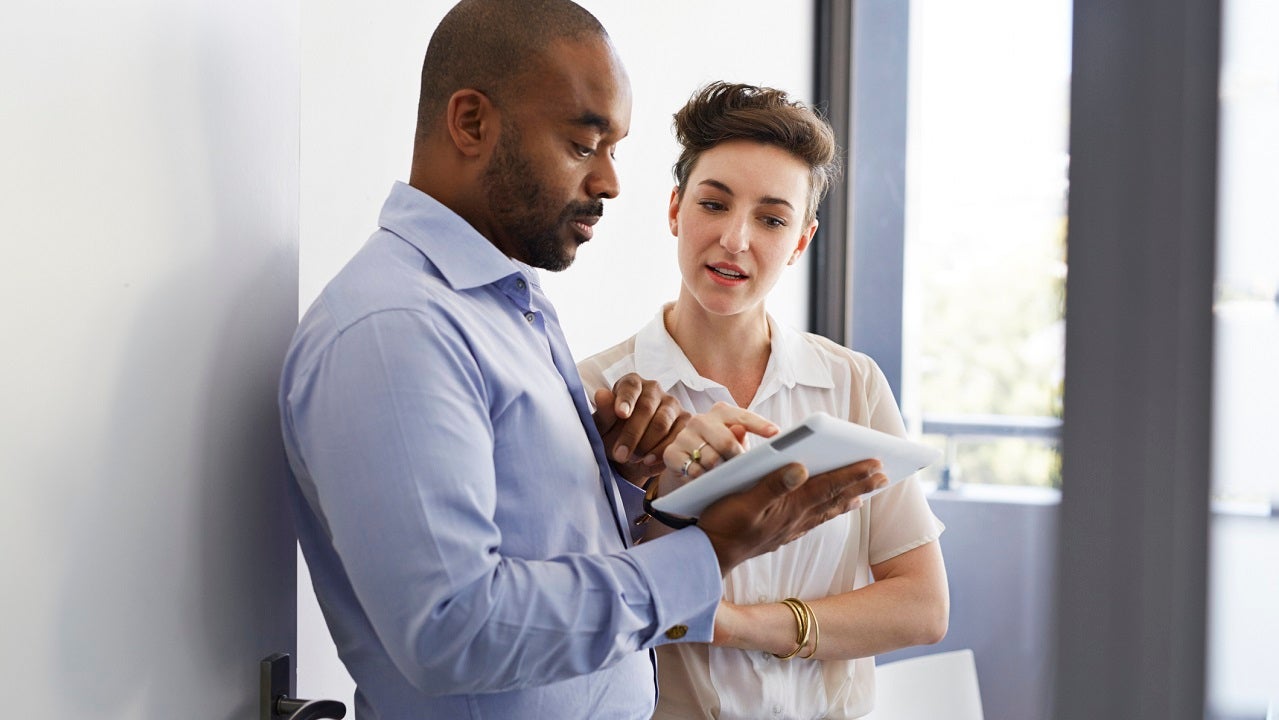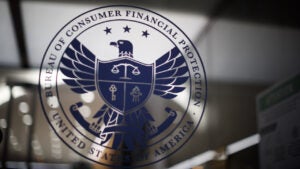What goes wrong most often at banks, according to consumer complaints filed at CFPB

Banks can be a great modern convenience, until something goes wrong.
You deposit a check with your banking app and expect the money to be fully available in a business day or two. But somehow the funds don’t appear, creating a domino effect of late bill payments and overdraft fees.
When this and other bank snafus occur, some people file complaints with the Consumer Financial Protection Bureau (CFPB). To find out what types of problems consumers encounter the most, Bankrate analyzed the CFPB’s Consumer Complaint Database associated with checking accounts, savings accounts and CDs. Our analysis centered on bank complaints that were received between June 30, 2018, and June 30, 2019.
There’s much to take away from these complaints. You can get an idea of what to look for when monitoring your account and the right way to approach certain transactions, such as making a deposit or closing an account. This added knowledge can save you both time and money.
Here are the five banking issue categories, as defined by the CFPB, that received the most complaints, ranked by the highest percentage of complaints.
- Managing an account: 62 percent.
- Closing an account: 11 percent.
- Opening an account: 9.5 percent.
- Problem with a lender or other company charging your account: around 8.4 percent.
- Problems caused by low fund balances: 8 percent.
1. Managing an account
Deposits and withdrawals generated the most complaints. Holds on deposits, special rules for new accounts and having withdrawals blocked were some problems reported.
Mostly these complaints are a function of customers who don’t know the rules associated with their account. If a problem with a deposit happens on a new account, for example, it may be because consumers don’t know about restrictions related to new accounts. To protect against fraud, banks have put certain measures in place that restrict withdrawals.
“In the first 30 days of opening an account a bank has the right to put holds on your money for an extended period of time before you can have access to it,” says Rose Oswald Poels, president and CEO for the Wisconsin Bankers Association.
Debit or ATM card complaints came in at No. 2. Issues ranging from a card being deactivated or declined to an account not properly linked to a card were most frequently cited by consumers.
How to potentially avoid these problems
Use direct deposit or ACH. Generally, funds should be available immediately when you have a direct deposit. Though there are some complaints in the CFPB database related to direct deposit, deposits via paper check generate much more angst for consumers.
“Use electronic methods of deposits and withdrawals when you can, to minimize the chance for human error,” says Dan Stous, a certified financial planner and director of financial planning and wealth advisor at Flagstone Financial Management in Lincoln, Nebraska. “Direct deposits are not only convenient, they’re also accurate and timely.
Use your ATM or debit card at least once every six months. Banks may deactivate cards that aren’t used every few months, regardless of the card’s expiration date. Regular use of your bank debit card could prevent you from not being able to withdraw from an ATM.
Let your bank know before you travel. Banks and credit card companies may tell you that you don’t need to put a travel notification on your account. But not notifying your bank of your travel plans is often the reason why some people have trouble accessing their accounts when traveling abroad or out of state.
“Even when you do cross state lines, it is quite possible that you do need to call your institution or your card company and let them know that you’re traveling in another state — even if it’s a border state to where you live,” Oswald Poels says. “But certainly if it’s in a different part of the country from where you live.”
Be aware of deposit cut-off times. Different banks have varying policies about the final deposit, or payment deadlines, for that banking day. Knowing the cutoff in your time zone for a deposit to be credited that day is key.
“Just because you’re making a deposit on a particular day doesn’t mean it will be credited to your account that same day,” Stous says. “You might not be able to rely on a deposit at 6:30 p.m. to cover your expenses that posted earlier that day.”
Generally, when you deposit a check or multiple checks for $200 or less, you can access the full amount on the next business day, according to the CFPB. And if you deposit checks more than $200, you can generally access $200 the next business day. The rest of the money should be available on the second business day, except in special circumstances.
Mobile deposits could be a way to make sure you make the cut-off time, says Stous, who worked in retail banking for 11 years as a teller, banker and branch manager.
Your bank may have a different timetable for mobile check deposits, however, according to the CFPB. So it pays to ask about your bank’s daily deadline for mobile deposits making that day’s business day cut off. Bank of America, for example, has a 9 p.m. ET same-day credit deadline for mobile check deposits for the Eastern or Central time zones, and a 9 p.m. PT deadline for both the Pacific and Mountain time zones.
2. Closing an account
Having your account closed without your consent was the most frequent complaint in this category. Banks may close your account due to inactivity or certain activity that makes you a risk to the bank.
Trouble closing an account on your own could also be caused by a negative balance or incorrectly assuming a zero balance would close your account automatically.
How to potentially avoid these problems
Follow the rules. Make sure you know the bank’s rules such as a minimum balance requirement or making at least one direct deposit per month. “Ask bank staff under what circumstances might your account be closed by the company,” Stous says.
Reasons a bank can close your account include suspected fraudulent activity or a chronically overdrawn status, Stous says. Banks can close an account if it’s at a zero or negative balance.
Avoid making too many transactions. A bank may close your account if you make too many withdrawals or transfers out of savings accounts and money market accounts. More than six withdrawals or transfers from a savings deposit account in a month are against Regulation D rules. ATM withdrawals and withdrawals with a teller are two types of transactions that don’t count toward your monthly limit of six
Tell your bank to close the account. To avoid confusion and avoid possible fees, inform the bank that you would like to close your account.
3. Opening an account
Terms and conditions for new accounts can be daunting with key details buried in the fine print, making this one of the most common complaint categories. The top customer complaint related to account openings is that people didn’t receive terms that were advertised.
(For general information about banks and accounts they offer, and to sort them by overall rating or individual category, let Bankrate find the right bank for you.)
How to potentially avoid these problems:
Ask questions. Whether you’re opening the account online or in person at a branch, review the account-opening agreement. You may want to chat with a representative online or by phone to ask questions. Make sure you take down the name of the representative you consulted. Some good questions to ask are:
- Is the advertised or quoted annual percentage yield (APY) an introductory offer? If so, how long will it last and what’s the current standard interest rate that it will revert to? (This will give you an idea of how much less interest your cash will earn after the introductory period ends.)
- What are the situations where I may incur a fee? Fees can range from a maintenance fee (going below a certain balance) to an early close-out fee on some bank accounts.
- Take a screenshot of the offer, if it’s online: Having an image will help you prove that you didn’t get the specified account terms, such as a cash-back offer or higher savings rate. If the bank’s website gives you an option to print the disclosure, take advantage of this opportunity.
- Find out what you need to open the account: Before you drive to your bank or start the online application process, it’s a good idea to see what your bank requires. “Make sure you have an unexpired government-issued ID,” Stous says. “Banks are required to collect a valid ID when opening an account.” An online bank may require that you lift a credit freeze or that you submit a photo or scan of your government-issued photo ID.
4. Unwanted charges by a lender or other company
Multiple consumer complaints reference problems with “stop payments,” an instruction you give your bank to withhold payment on a check you wrote.
Sometimes stops are put on checks too late or for an incorrect dollar amount, rendering them useless. The CFPB recommends giving your bank a stop payment order at least three business days before the amount will be debited. If a written stop payment is required, the CFPB recommends that you provide that within 14 days of verbally telling your bank. Ask how long the stop payment order will be active and whether it will expire.
How to potentially avoid these problems
Keep an eye on your account. If you don’t monitor your account at least monthly, you’ll never notice if a lender or company keeps charging your account or whether a stopped payment actually went through.
Cancel recurring monthly payments through the vendor. If you don’t cancel recurring charges the correct way, these debits may continue to post to your account, regardless of stop payment instructions you give your bank.
5. Problems caused by low fund balances
Letting your account balance get too low or turn negative can prove costly, especially if you don’t have enough cash to cover checks you wrote. Overdraft fees also are common complaints and rank among the largest banking fees. According to Bankrate’s 2018 checking account and ATM fee study, the average overdraft fee was $33.23.
How to potentially avoid these problems
Consider consolidating accounts. If you have an account that keeps overdrafting, and have another account, it might make sense to consolidate your accounts if this added balance will help keep your account positive.
Developing a budget and building up enough of a cushion to avoid overdrafting your account is also a longer-term solution.
If you’re concerned about small overdrafts you could sign up for a Dave checking account. Not only will it not let you overdraft your account, but it provides you an overdraft alternative when your cash flow is tight by advancing you $100 with no interest.
Learn more:
- 11 ways to bank smarter: Simple tips and tricks to increase your wealth
- 10 reasons to break up with your bank
- With the Fed poised to cut rates, keep an eye on your APY
Why we ask for feedback Your feedback helps us improve our content and services. It takes less than a minute to complete.
Your responses are anonymous and will only be used for improving our website.





